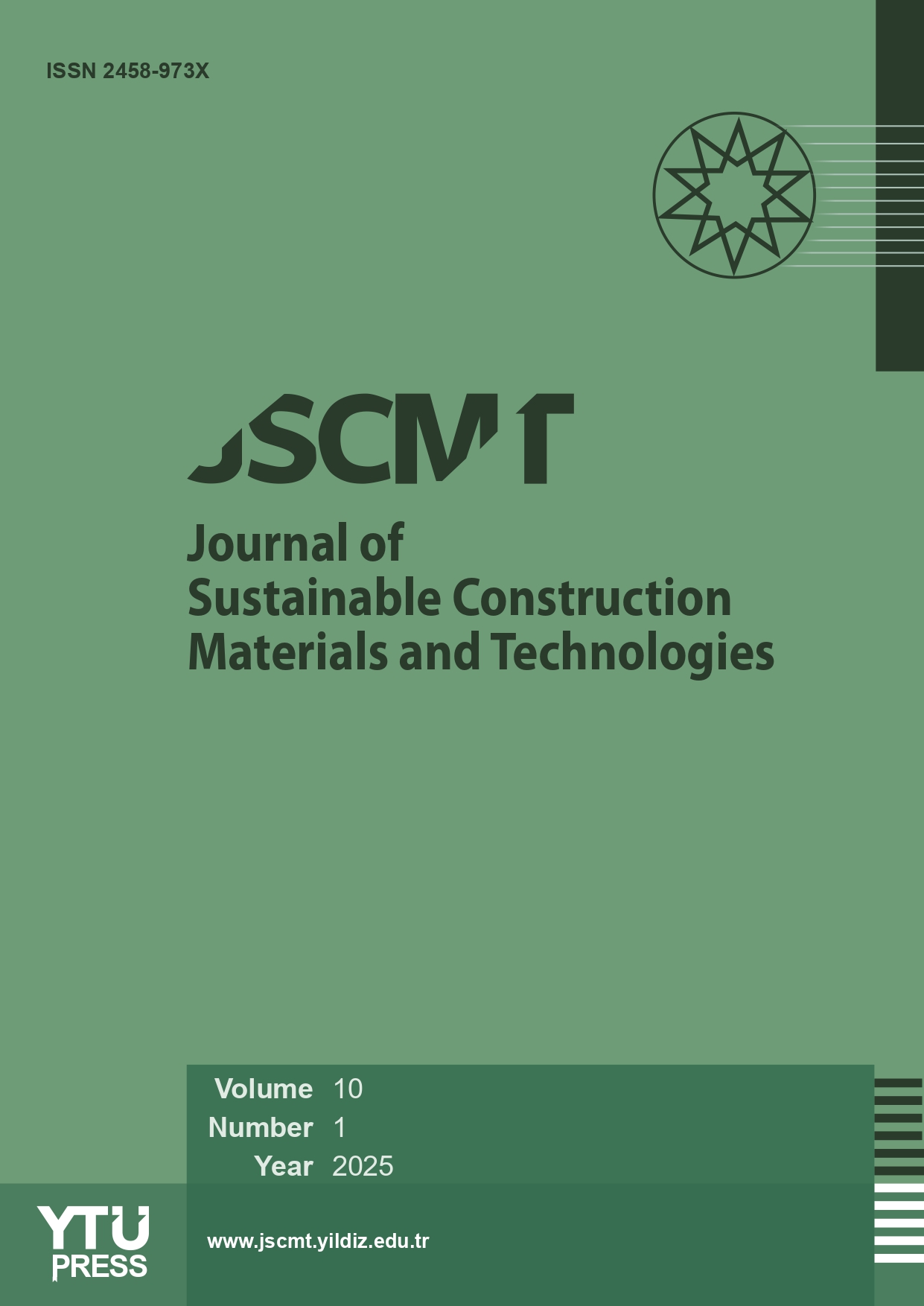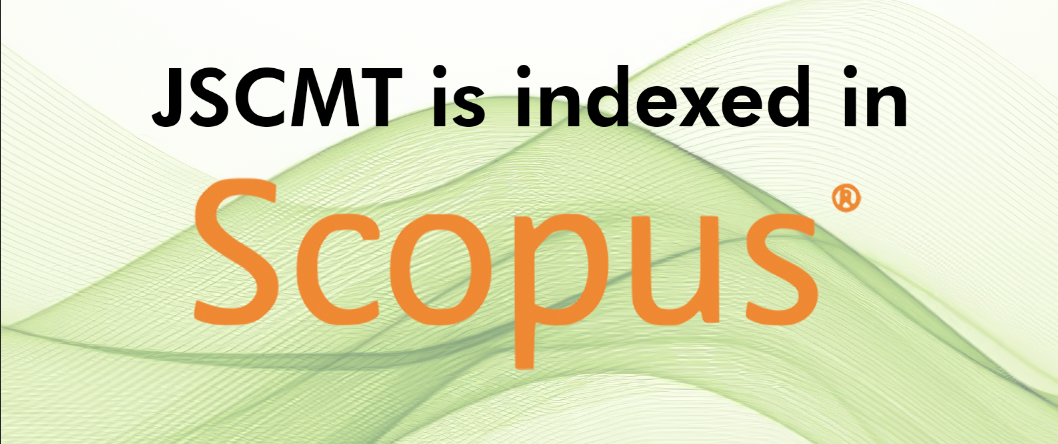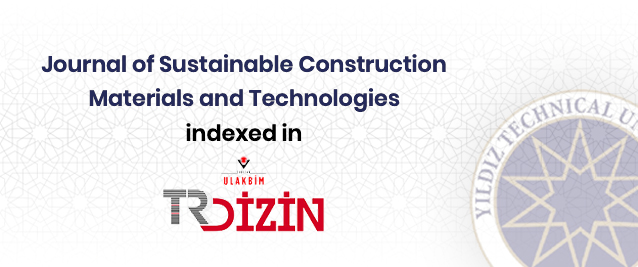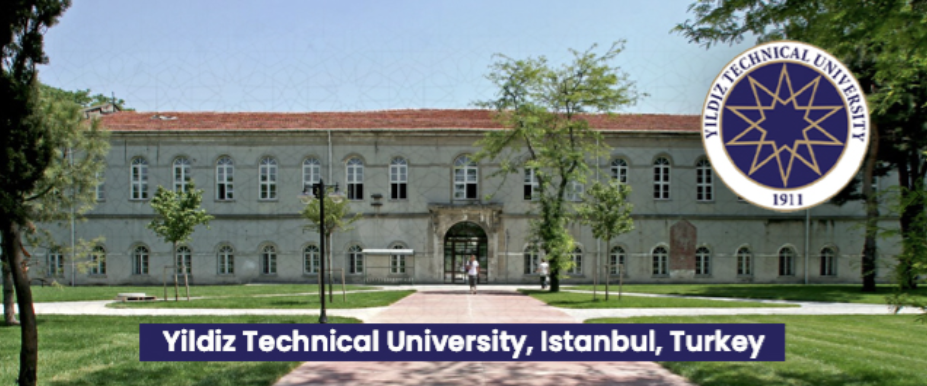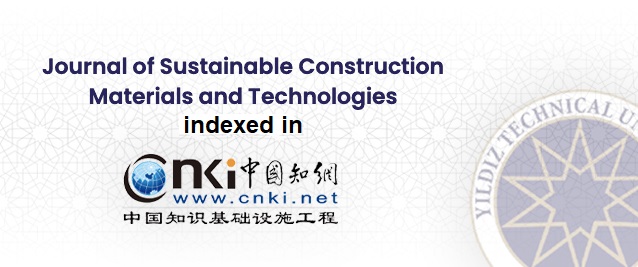The Journal of Sustainable Construction Materials and Technologies (JSCMT) is a peer-reviewed, open-access journal dedicated to advancing research, innovation, and practical applications in sustainable construction. It serves as an interdisciplinary platform for researchers, engineers, and industry professionals to contribute cutting-edge work that enhances sustainability in the built environment.
JSCMT publishes high-quality original research articles, review papers, case studies, technical notes, and short communications. The journal is particularly interested in studies that integrate scientific, technical, economic, and environmental perspectives to address contemporary challenges in sustainable construction.
Key Research Areas
1. Sustainable Construction Materials and Green Chemistry- Development and characterization of eco-friendly binders, including alternative cements (e.g., geopolymers) and alkali-activated materials.
- Chemical composition, hydration mechanisms, and phase transformations in sustainable building materials.
- Advanced chemical admixtures and sustainable additives for concrete, mortar, and asphalt.
- Polymer-based and bio-based construction materials, including biopolymers and eco-friendly resins.
- Chemical stability, degradation, and aging mechanisms of construction materials.
2. Circular Economy and Waste Valorization
- Recycling and reuse of construction and demolition waste.
- Chemical and mechanical processes for material recovery from municipal solid waste (MSW).
- Strategies for designing structures with demountable, deconstructable, and recyclable materials.
- Sustainable resource management and zero-waste construction strategies.
3. Energy Efficiency and Carbon Footprint Reduction
- Low-carbon construction materials and carbon capture technologies in cement and concrete production.
- Passive and active energy-efficient strategies in building materials and design.
- Green roofing systems, phase change materials (PCMs), and thermal insulation advancements.
- Renewable energy integration in construction materials and infrastructure.
- Embodied energy analysis and greenhouse gas reduction strategies.
4. Durability and Structural Performance
- Advanced durability assessment methods for sustainable construction materials.
- Self-healing materials and smart coatings for enhanced structural performance.
- Chemical degradation mechanisms, including sulfate attack, alkali-silica reaction (ASR), and carbonation.
- Maintenance and repair technologies to extend the service life of buildings and infrastructure.
5. Digitalization and Smart Construction
- Application of Building Information Modeling (BIM) and Artificial Intelligence (AI) in sustainable construction.
- Smart materials and sensor-integrated structures for real-time performance monitoring.
- Robotics and automation in eco-friendly construction practices.
6. Resilient and Climate-Adaptive Construction
- Development of climate-resilient materials for extreme environmental conditions.
- Disaster-resistant construction technologies and sustainable urban infrastructure.
- Smart coatings and phase-changing materials for adaptive thermal regulation.
7. Environmental Impact Assessment and Sustainability Certifications
- Life cycle assessment (LCA) and environmental impact assessment (EIA) of construction materials and processes.
- Green building certification systems (e.g., LEED, BREEAM, DGNB) and regulatory frameworks for sustainable materials.
- Public perception, policy development, and social responsibility in sustainable construction.
Bridging Academia and Industry
JSCMT seeks to bridge the gap between academia and industry by fostering research that leads to real-world applications. The journal encourages interdisciplinary contributions that integrate scientific innovation with practical implementation to advance sustainability in construction.


